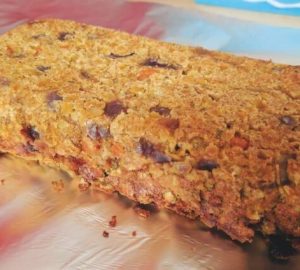Electrolytes: The Difference Between Sporting Success and Failure
Whilst most experts agree that proper hydration, sufficient calories and a calculated intake of carbohydrates are essential to sports performance, research conducted at the Human Performance Laboratory in New Delhi seems to support the notion that the electrolyte balance within an athlete’s body could be an equally important factor, says The Protein Works Ross Edgley.
In a study designed to investigate the effect of carbohydrate-electrolyte supplementation on the sports performance and cardiovascular status of elite level athletes during exercise and recovery, subjects performed an exercise test [running] at 70% of their maximum work rate for 60 minutes. One group was given a carbohydrate-electrolyte drink both during and after exercise, whilst the other group received nothing. Performance time and heart rate were noted and blood samples were collected for the analysis of glucose and lactate levels. The group that consumed the carbohydrate-electrolyte drink saw an improvement in total endurance time, heart rate responses and blood lactate during exercise, as well as a significant improvement in cardiovascular responses, blood glucose and lactate removal after exercise as well. The study concluded ‘carbohydrate-electrolyte drink can increase endurance performance as well as enhance lactate removal and thereby delay the onset of fatigue.’ (G.L. Khanna and I. Manna, 2005.)
So what exactly are electrolytes? Essentially they’re minerals that once dissolved in water break into smaller, electrically charged particles called ions. The major electrolytes in the body are; Sodium (Na+) Potassium (K+) Chloride (Cl-) Calcium (Ca2+) Magnesium (Mg2+) Bicarbonate (HCO3-) Phosphate (PO42-) and Sulfate (SO42-.) They are present wherever there’s water in your body (so blood, cells and cell surroundings) and their primary functions are to regulate your body’s fluids, help to maintain a healthy blood pH balance and create the electrical impulses essential to all aspects of physical activity from basic cell function to complex neuromuscular interactions that are needed for athletic performance. They do this by ensuring your cells (especially the cells of the heart, nerves and muscles) maintain their voltages across their cell membranes to carry electrical impulses (nerve impulses, muscle contractions) across themselves and to other cells. However in order to do this properly, the body must contain a proper electrolyte balance inside and outside of your cells, so they can efficiently transport water to and from the body’s major systems.
If your body contains too many electrolytes, the kidneys will quickly flush out the unneeded ones since your salt levels are regulated by your anti-diuretic hormones aldosterone and parathyroid hormones. However it’s when your electrolyte content is low when you need to worry. This can happen when you exercise heavily, since you lose electrolytes in your sweat (particularly sodium and potassium) and these electrolytes must be replaced to keep the electrolyte concentrations of your body fluids constant. Otherwise the electrical impulses signalling your muscles to contract during a swim become less efficient. This, in turn, affects performance, or in the extreme case that they become really low you will need to visit the hospital.
So how do you ensure you’re body has sufficient electrolytes before, during and after a race or training. One way is to consume specially formulated isotonic sports drinks. Alternatively you can buy the electrolytes separately and add them to your preferred sports drink.
*The Protein Works is an on-line supplier of sports nutrition products. Find out more at www.theproteinworks.com (https://www.theproteinworks.com/)







